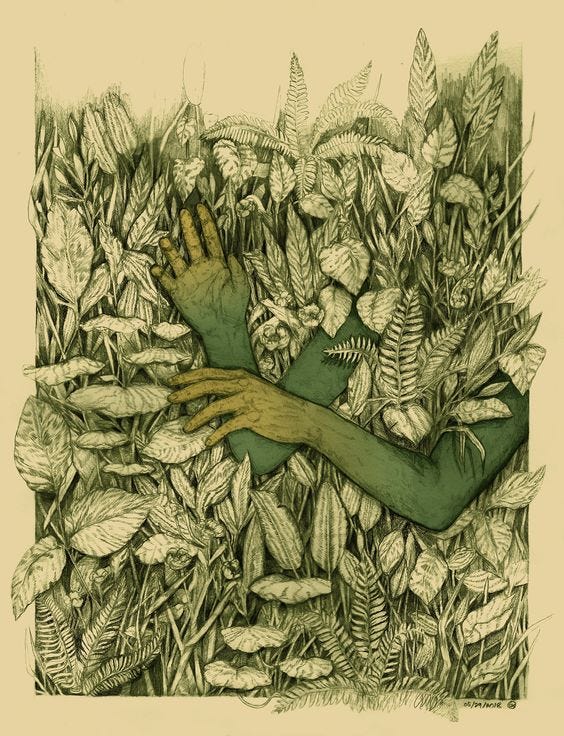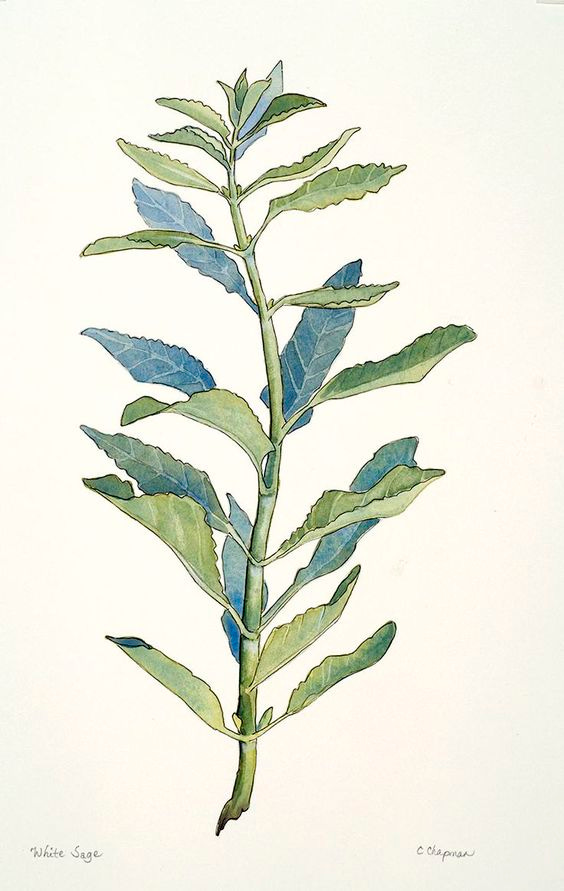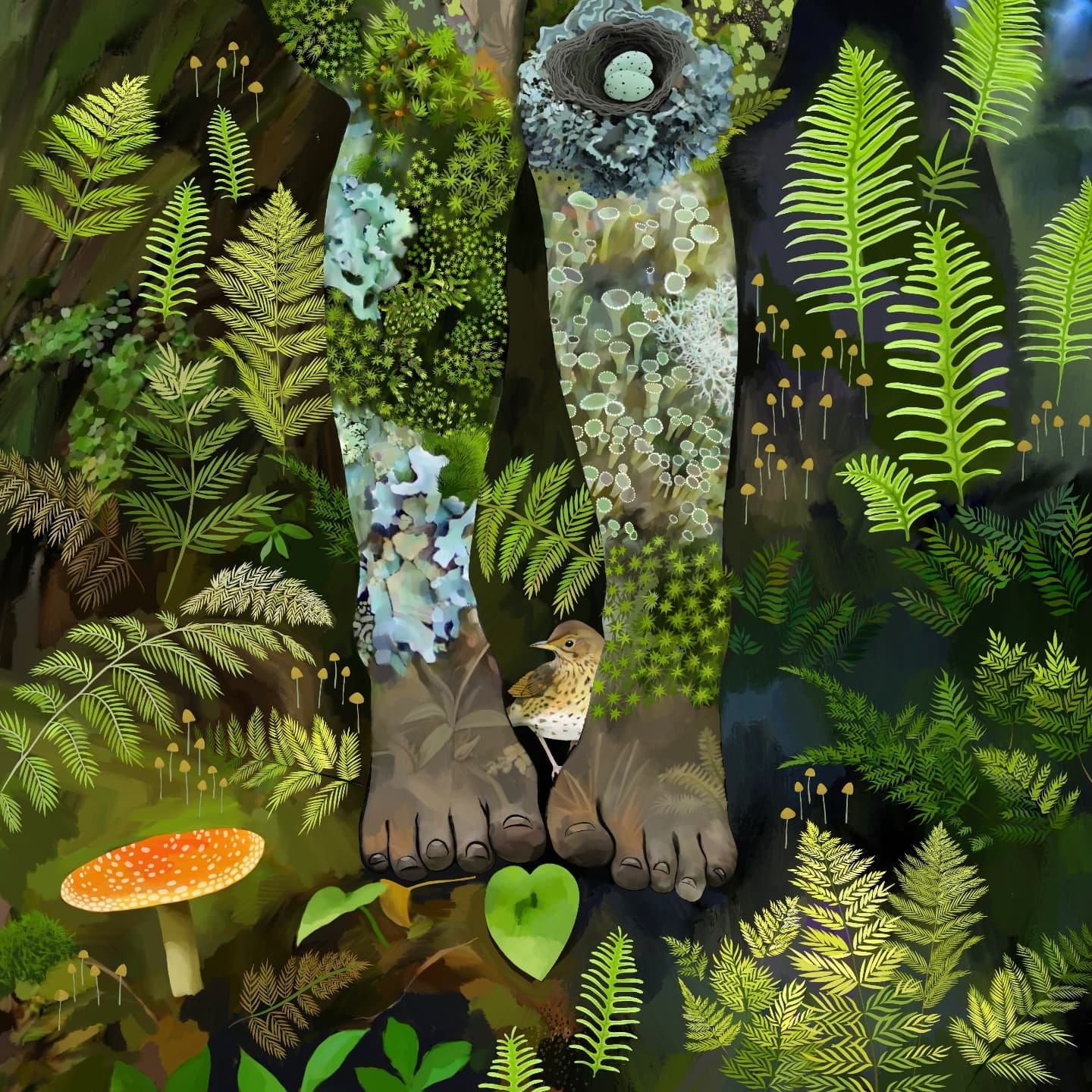Witch Way Q&A: To Smudge or Not to Smudge [+ Important Updates]
Racism, Cultural Appropriation, and Plants + Dates you need to know
INSIDE: IMPORTANT, PLEASE READ
🌿 A Witch Way Q&A convo about cultural appropriation and the word “smudging”
🌝 Come to my Full Moon in Scorpio + Jupiter Conjunct Uranus Ritual THIS Sunday, April 21, at 5pm PST. We’ll be clearing old patterns, activating breakthroughs, and steering our transformations.
📖 Note that the Reading Group is pushed to NEXT Thursday 4/25/24 6pm PST, text for Malidoma Some’s “Ritual: Power, Healing, and Community” below in Subscriber section.

Dear Amanda,
I trust and respect your ideas and perspectives very much so I'm hoping you might be able to shed some light on the topic of appropriation. In this newsletter, you explained that the word smudging is a Native American term that is best avoided unless one is indigenous. I'm a writer and my instinctive reaction to being told that I can't use a word (any word) is to be taken aback and, if I'm honest, to feel a little defiant. I recognize that we're all imperfect humans and that there is always more to learn, especially about sensitive subjects like this one, so I may well decide that I need an attitude adjustment about this (usually the case if I feel triggered).
What I need to understand is: Why is a non-indigenous person using the word "smudging" appropriation but making a video of yourself using Native sign language and sending it out in a newsletter that solicits paid subscriptions not appropriation? (To be clear, I loved that video and thank you so much for sending it to us!) Should I be ashamed that I wrote a novel with a main character who is Native American, and that includes some Native traditions, when I am a white woman? Does the answer change if you know that one of my great-great-great grandmothers was Cherokee, that my character was based on her, and that I wrote the book to explore my own ancestry? How much is the answer affected by the fact that I don't look like I have Native ancestry, and if it's significantly affected, then how is that summarily better or more noble than not allowing mixed-race people who didn't look "white enough" to publish books in the early 1800s?
A friend recently told me that "if you're making money on it, then it's definitely appropriation." But I just don't see how it could be quite that cut and dry. I'm a creative person who has dedicated my whole life to travel. It's all I've ever consistently and deeply wanted to do, so I've been location independent for going on 9 years now, and I've had the great privilege of living and working in 60 different countries across all seven continents. I've made difficult sacrifices to live this way, including the stability of having a home, many of my relationships, the comfort of traditional financial security, and more. Learning about and integrating different parts of the world and all of their many different cultural practices is the love of my life. Does this make me a bad person? Am I not allowed to make art about what inspires me most?
I know that making fun of, making light of, or using cultural traditions that aren't your own irreverently and/or purely for profit is unkind and of course I do find that distasteful. But doesn't a person's intention count for something? I also know that if artists didn't make art that might offend someone somewhere on earth, we would never make anything at all. What's your take on all this?
Respectfully,
Stressed about Smudging

Dear Stressed About Smudging,
First of all, thank you so much for sending this note and for your willingness to be vulnerable and find out more about this issue. From your letter I can tell that this question is something that deeply matters to you, and that you’ve dedicated a lot of time and thought to wrestling with it. There are so many things in your letter I wish to address that I can’t do them all justice here in this short email, but I thought I’d give the top three points some attention as follows (keeping in mind that I am not an expert on this subject and am still a student of right relationship, just like you)…
1. Do you have a right to use “forbidden” words, such as smudging?
The dominant ontology (i.e. reality) in the United States is based on rights. In theory, as U.S. citizens “we” have certain “inalienable rights”, such as the right to free speech, to pursue happiness, etc. [Note however that not all “we’s” are created equal in the USA]. In the Western worldview, we are brought up to believe that anything which gets in the way of our exercising our rights is a burden and an obstacle to be overcome. Even if we see ourselves as politically on the Left, the idea of “human rights” is often intrinsic to our sense of justice, because most of us have been steeped in the Western liberal world view since birth. It’s often difficult for Westerners to imagine justice created any other way than through rights. In our ontology justice IS rights.
But what if that’s not true?
The fact is, it’s not that you CAN’T use the word smudging, like, it’s not that you don’t have the right to use it. It’s that if you DO use the word smudging, some people might feel hurt or angry. No one will arrest you if you use the word, but people might feel angry or hurt or criticize you.
So one way of framing your question could be, “do you have a RIGHT to not be criticized for using a word that some people might find harmful?” Or, another way of phrasing the question might be: “WHO might find it hurtful or harmful if you choose to use the word smudging?”
Chances are high that people who have historically suffered genocide at the hands of white people, and are STILL suffering and struggling against white supremacy, are the ones who stand to be harmed by your use of this word. Rather than thinking of your right to use the word “smudge” when so many other words are available to you, consider cultivating a desire to take responsibility for using sacred words and practices with care, especially in relationship to people who have suffered tremendous, ongoing harm.
What changes if we think of justice as being created through responsibilities and relationships, rather than rights?
As someone who wants to work with white sage, what if you took your relationship with the plant seriously? To do that, you’d need to hold it with with care, both for the plant itself, and the people who created the medicinal practices you so treasure. Care might look like growing the plant yourself, and/or building relationships with the Indigenous people here in the South West (since white sage only grows here), and helping to make sure both have what they need to thrive.
Remember that the white sage plant takes many years to grow, and is currently endangered because many people harvest it recklessly. In fact, many First Nations people who have sacred relationships with this plant can’t access it because the land where it grows was stolen from them and they still need permission from the very people who took it from them and massacred their families in order to get it.

2. Why is it “appropriation” to use the word smudging, but not appropriation to send out a video using Native American Sign Language?
I can’t say for certain “I was not appropriating” when I sent out that video because, there isn’t really “a rule” about what is appropriation and what isn’t.
In addition to rights, Western ontology also valorizes rules and laws. Western ontology makes people want a written law or rule that they/we can point to and say: “See here, it says that I am allowed to use this word, or own this land, or harvest this plant.”
But in other ontologies (Indigenous ontologies for example), we’d have to consider our relationships in order to know whether or not our actions are correct.
For example, there are laws/rules in the United States that say that a corporation has every right to own land, pour toxic waste into it, dam the rivers, and exploit the water. But if the United States had a relational ontology, then corporations would need to consider who would be effected or harmed by such practices, and they’d have to get the consent of the other beings on, in, and around the land before they took any actions.
Personally, I know which ontology I’d rather live in, and its initials are not U.S.A.
A guiding question to consider for the future might be: “Is [the thing you want to do] in right relationship with the beings who are most affected by your actions?”
In the case of the video I sent out, I learned to do Native Sign language through a class I was taking on Dance and Decoloniality, where we students had the honor of meeting many Indigenous leaders who shared teachings about their culture. One thing we learned about was Native American Sign Language. We had an assignment to tell a story using the language. Learning the language of a nation is considered by many people a respectful thing to do.
Instead of telling a story, I decided to create a prayer of thanks and gratitude for the Indigenous people and for the land, so that I could offer it to the land in an Indigenous language, rather than the colonial English, when I do my rituals here. I did this in effort to build a relationship of respect with the land and the Indigenous people of this place.
I had the opportunity, through the class, to share this prayer with a group of Indigenous (Tongva, Chumash, and Ohlone) people and many of them went out of their way to tell me that they found it moving.
But it just as easily could’ve gone wrong.
Some of the people at the gathering could have been offended or hurt and just not said anything. I had no guarantee that everyone would be pleased with my sharing the prayer. And in fact, people could have felt both pleased and angered simultaneously, because humans are complex like that.
For instance, maybe it would feel moving to have a settler thank you and offer their gratitude in your own language. But it might also simultaneously stimulate feelings of anger or loss.
I’d learned the sign language at a university (in itself a place of privilege) built on land that had been stolen from their ancestors (who were tortured, murdered, and enslaved by my ancestors), and the sign language itself is not something all indigenous people know because white people deliberately prevented them from learning it while taking their children to be locked away in violent “educational” boarding schools. Point being:
White people don’t have a right to Indigenous people’s approval or good will, even when white people are trying to do the right thing. Indigenous people, and all people of color, don’t owe white people forgiveness, patience, acceptance, explanations, or care for their feelings.
Some Native American people may generously offer their good will to white folks, but they don’t owe it to anyone. Neither you, nor I, dear reader, are entitled to people of color liking what we do or withholding their criticism.
When I shared the video, I only did it with my subscribers because it’s a smaller, more intimate group, and I felt like they would understand it in the way that I meant it, which was to share what I was learning about how to honor Native languages and knowledge.
I was excited about what I was learning and I wanted to share it, but in a closed context with people whom I trust and feel like I have a closer relationship than just anyone who clicks on my page.
But, there are people who could have been offended by the video. And, to make it more complicated, some First Nations people may have loved it, others might have hated it.
First Nations people have differences of opinion.
Some First Nations people might say it’s not appropriate for white people to work with the white sage plant, ever, or to use the word smudging, ever.
Some First Nations people might teach a class to white people on how to smudge or even how to forage for white sage!
Given that, how are is anyone supposed to know what’s right?
White people (and all people raised in the West) tend to want certainty. Western ontology wants rules. Like, the rule is: don’t say smudge! But in reality there is no rule. You just have to do your best to act with care and accept that some people might disapprove of you anyway.

3. Should you feel ashamed for writing a novel with a Native American protagonist if you are a white person?
So, if you write a novel where the main character is a Native American, some people might not like it. They might be offended, and they might say so. They are allowed to feel how they want about it. That’s the risk you take by writing it.
When you say: should I feel ashamed for writing it? Only you can answer that question. But you might want to ask yourself: will publishing this work hurt anyone? how will publishing this book help the Cherokee people that I am so eager to connect with? have I spoken with any Cherokee people about this? have I attempted to build relationships with Cherokee people? have I been more concerned with what would be good for me than would be good for them?
The notion of blood quantum is a controversial one for many First Nations people. For many indigenous people, you are indigenous because of your RELATIONSHIPS with Indigenous people, land, practices, and histories, not because you have this or that many drops of blood. But also, there are many full blooded Indigenous children who were taken away from their families in order to prevent those relationships from happening.
You are entering treacherous territory when you say my great-great-great-grandmother was Cherokee because, if you are perceived as white, you are claiming a connection with the Cherokee people without having suffered the continued pain of genocide that many First Nations people are STILL facing.
And, weirdly, I also think it’s a thing that many white people are told that they have First Nations ancestry when really they don’t. I’m not saying this is true in your case! But I can say that my family told me my entire life that I was 1/16th Native American - Cherokee in fact - and it turns out to be 100% false. I have no Native blood whatsoever. And sadly this story is not at all uncommon.
I totally get wanting to learn more about your ancestors. I can feel your longing in your letter and it makes total sense. You’re longing for meaning and connection, as most of us do.
It’s just important that folks keep in mind (as I know you will) that for many First Nations people, the genocide isn’t over, IT’S STILL HAPPENING. First Nations people often don’t have access to their ancestral homelands, their sacred places are being polluted, and Indigenous women, girls, and two-spirit folk are murdered and abducted at 10x the rate of white women.
In short, my point with all of this is that one of the best ways to get close to your Indigenous ancestors may be to practice a relational way of being, and focus on how to care for and with Native people, plants, and cultures, rather than how to use them correctly. In fact, doing so might get you closer to your Indigenous ancestors than you ever knew you could.
With love,
Amanda
If you’re interested in learning far more than I could ever offer on this subject, here are a few First Nations thought leaders who have informed my world view:
Philip J. Deloria’s book Playing Indian is his “classic exploration of white America’s drive to “play Indian,” from the Boston Tea Party to the New Age”.
Lyla June (follow her on IG). She’s an artist and scholar. Here’s her TED Talk.
Winona La Duke’s book Recovering the Sacred (and all her books) are essential reading.
Audra Simpson’s book Mohawk Interruptus is a scholarly look Native “struggles to articulate and maintain political sovereignty through centuries of settler colonialism.”
I love Jack D. Forbes book “Columbus and Other Cannibals,” and think about it all the time. This book is “one of the founding texts of the anti-civilization movement.”

